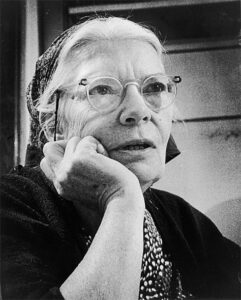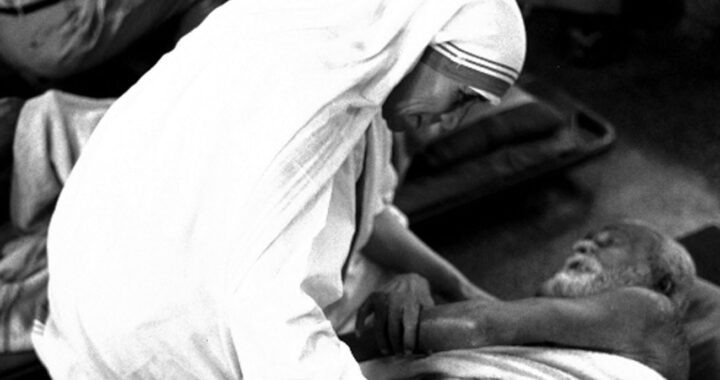
Archbishop José H. Gomez.
On March 12, Archbishop Gomez addressed One LA–IAF, a coalition of area religious and nonprofit organizations promoting social justice. The following is adapted from his talk.
By Archbishop José H. Gomez | New World of Faith
One day, St. Mother Teresa found an old woman lying on the streets of Calcutta. She was homeless, mentally ill, and in a lot of pain.
Mother Teresa took her in, but all the while the woman was yelling and cursing. At one point she asked: “Why are you doing this? Who taught you?”
Mother Teresa replied: “My God taught me.”
This calmed the woman down a little, and she asked: “Who is this God?”
Mother Teresa responded: “You know my God. My God is called Love.”
This story teaches us a beautiful lesson about compassion for the poor.
It also tells us about the heart of God, about the Eucharist, and about our commitments as believers.
Our God is called love.
And our God so loved the world that he sent his only Son to share in our humanity, and in the reality of our everyday lives.
And out of love, Jesus laid down his life on the cross for you and me, and for every person who was ever born or ever will be born.
The Eucharist is the sacrament of his great love.
Jesus left us the Eucharist so that we would never forget what he has done for us and how much he loves us. And he left us the Eucharist so that we would never forget his new commandment: that we love one another, as he has loved us.
And from the time of the apostles, there has always been a close connection between the Eucharist and Jesus’ command to love our neighbor, especially the poor.
One of the oldest Church documents outside the New Testament is called “The Teaching of the Apostles.” It dates to the early third century, and it contains this line: “Widows and orphans are to be revered like the altar.”
Our Eucharistic faith is summed up in this beautiful line.
Jesus taught us that he would be present in the bread and wine at the altar, but also in the flesh and blood of our neighbors, especially the poor and suffering. “As you did it to one of the least of these my brethren, you did it to me,” he told us.
This is how we are called to live: loving and revering Jesus in the Eucharist, and putting our love into living action in reverent service of the poor.

Dorothy Day. Our God is called love, and that’s how we can serve others.



